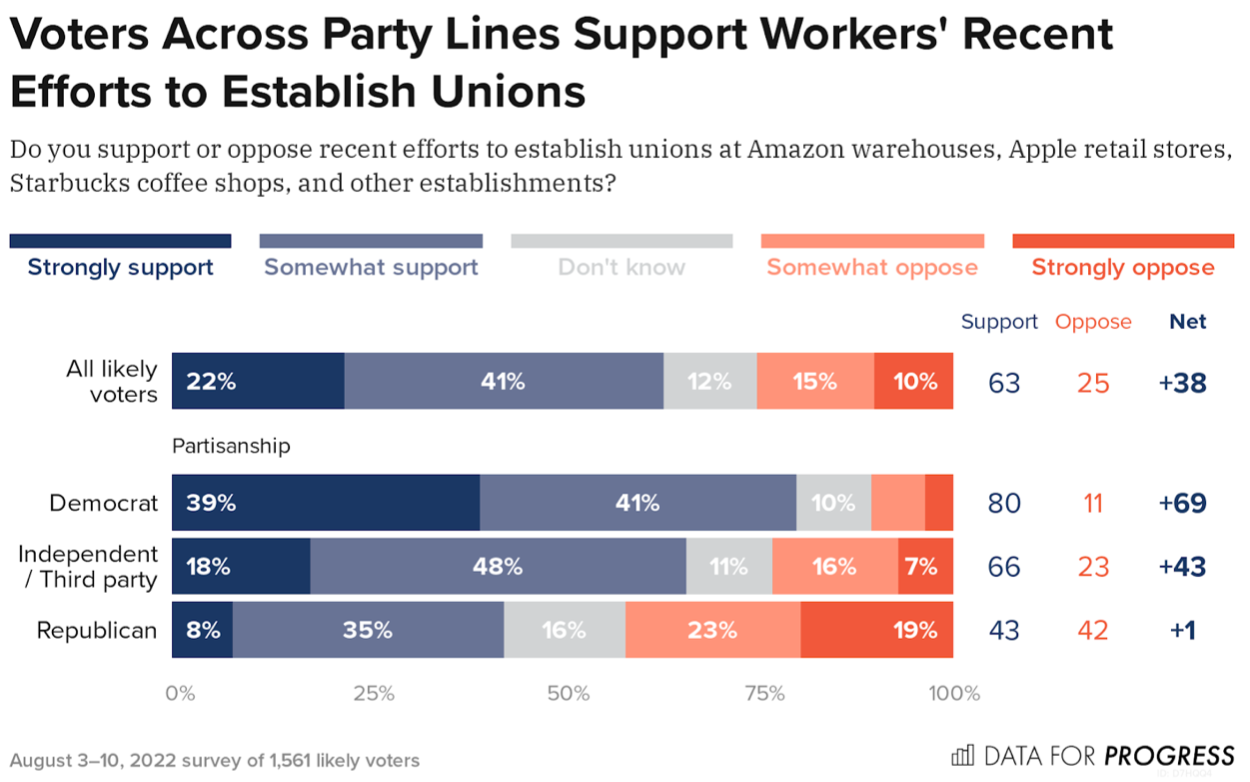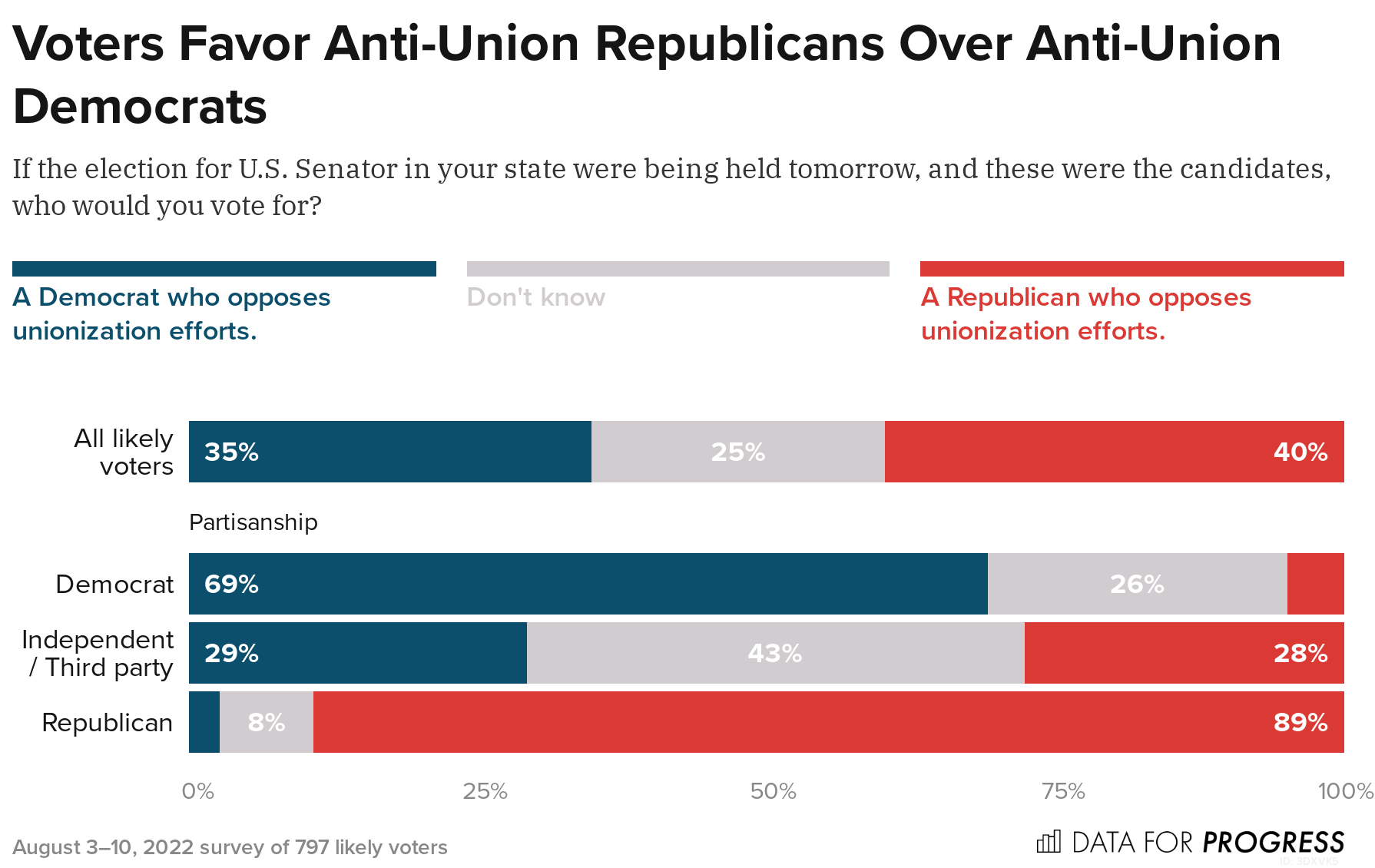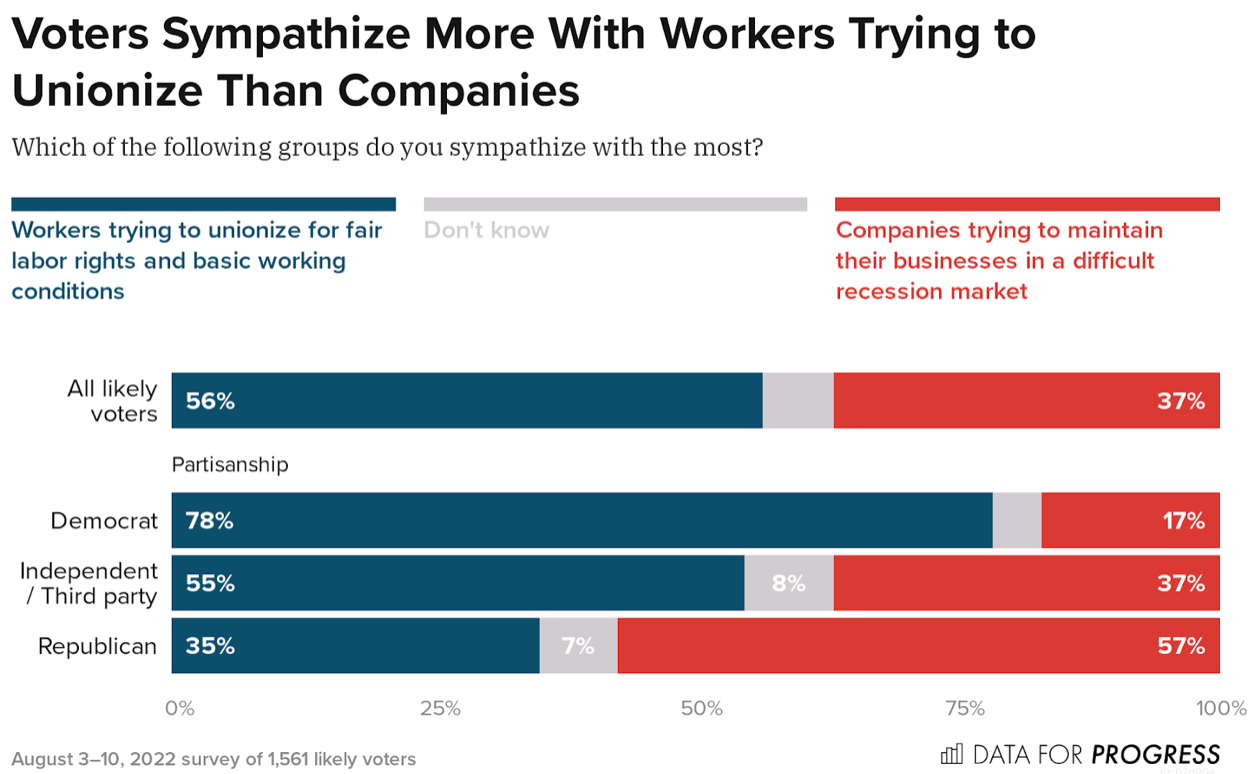Voters Support Recent Unionization Efforts Over Major Corporations
By Bella Kumar
After decades of attacks and decline in both participation and influence, worker unionization is on the rise. Employees of corporations across the country, most notably Starbucks and Amazon, are increasingly organizing for more benefits, pay, and safety from their employers. Since Starbucks employees’ first union win late last year, more than 200 Starbucks company-owned stores have formally organized. Workers at an Amazon warehouse in New York City also recently voted to form the first union at the second-largest U.S. private employer. New Data for Progress polling shows that voters support building worker power over protecting corporations, and want to vote for candidates who support workers.
A majority of voters (63 percent) support recent efforts to establish unions at Amazon warehouses, Apple retail stores, Starbucks coffee shops, and other establishments. Voters support unionization by a +38-point margin, including Democrats by a +69-point margin, Independents by a +43-point margin, and Republicans by a +1-point margin.
When voters are asked to choose between a pro-union Democrat and an anti-union Republican, we find the pro-union Democrat wins by a +12-point margin.
When voters are asked to choose between an anti-union Democrat and an anti-union Republican, we find the anti-union Republican wins by a +5-point margin. A pro-union Democrat outperforms an anti-union Democrat by a +20-point margin among Democrats, by a +24-point margin among Independents, and by a +14-point margin among Republicans.
When asked which group they sympathize with more, workers trying to unionize for fair labor rights and basic working conditions or companies trying to maintain their businesses in a difficult recession market, voters choose the former. Fifty-six percent of voters sympathize with workers’ unionization efforts over companies' bottom lines.
Sixty-one percent of voters across party lines are either “very concerned” or “somewhat concerned” about employers engaging in workplace retaliation — when an employer punishes an employee for engaging in legally protected activity like unionization. This includes 71 percent of Democrats, 57 percent of Independents, and 54 percent of Republicans.
Furthermore, voters strongly support penalizing companies that retaliate against workers who try to form a union by a +43-point margin. This includes Democrats by a +53-point margin, Independents by a +49-point margin, and Republicans by a +26-point margin.
Unionized workers have an established right to a workplace "free from controlled hazards," but there are no requirements for employers to protect employees from extreme heat or cold. Voters across partisanship support regulations that protect outdoor workers and workers in warehouses, factories, and kitchens from extreme temperatures by a +73-point margin.
Currently, private-sector businesses can fire workers for any reason that does not violate local, state, and federal law. Some lawmakers in Congress are proposing legislation to establish "just cause" terminations. This would require employers to document evidence of legitimate performance issues before being able to fire a worker, rather than allowing employers to fire employees "at-will," which doesn't require a reason for firing an employee. Voters across partisanship also support this proposal to establish "just cause" terminations by a +36-point margin.
We also find that voters support lawmakers speaking out in favor of labor protections by a +30-point margin, including Democrats by a +63-point margin and Independents by a +32-point margin.
It is clear that unionization is a popular and crosscutting issue for voters. The issue of labor is a bipartisan winner and should be emphasized by lawmakers ahead of the midterms.
Bella Kumar (@bellakkumar) is a communications intern at Data for Progress.









